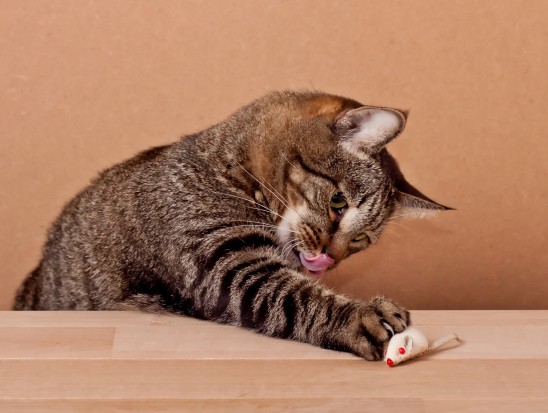
The psychological relationships that women have with their pets have enabled women to change one life at a time for the better. Women of different ages, races, and economic status develop strong friendships as they engage in delightful conversations about their pets?escapades.
According to a recent American Kennel Club study, 8 in 10 dog owners consider pets 揻amily.?The single woman can now select her mate online by visiting dating sites such as the Dog Channel Exclusives. According to Dog Fancy magazine, a British survey found that 25 percent of dog owners would choose a pet over their mate if forced to make a choice厀hich explains the popularity of the pillow that is seen in many homes that states 揥e are staying together for the sake of the dog.?br />
Women appreciate the role that pets play in family relationships.
When a young couple does not have children, they frequently get a pet. We hear many stories of women who nurture their pets and soon the women become pregnant. Other women give in to the pleas of their children to add a pet to the family. The pet can help teach older children how to be responsible with daily tasks and to have compassion for others. Once children are grown and leave home, women acquire pets to fill the void. When a woman is married to a man that she loves but who does not provide recreational or social outlets, she may acquire pets to fill those needs.
The psychological relationship between the physical health of women and their pets can be witnessed when women are walking their dogs.
It is not unusual today to see mature and even elderly women in the show ring. Their interaction with others outside their home towns and traveling to different locations seems to make them emotionally and physically healthier than those women with more sedentary, isolated lifestyles. It seems as though when their dog is nearby, women feel less stress and fare better than even when a friend is nearby so competition remains fun.
According to a study in Germany, the health and eating habits of women can be mirrored in their cats. Three times more women who owned overweight cats revealed that they did not feel very happy before acquiring a cat as compared to the number of owners of normal weight cats. The women who owned the overweight cats acquired the cat to console and encourage them and as a result had a closer relationship. These women tended to treat these cats as humans and even substitute the cats for human companions. By using food as a way of communicating with their cats, the cats became overweight.*
There is a psychological relationship between the emotional health of women and their pets. Women do not always live close to their families. Their pet tends to be the anchor of support when family members are not available.
When women are in a crisis situation, their pets can be their only source of comfort and affection. In the case of battered women, those women with pets delay going to a shelter because of their concern for the animal抯 welfare. Not all shelters accept pets and in many cases, the women cannot afford to fund outside care for the pet in a safe place. When a woman has to abandon the pet under these conditions, it puts her under additional emotional stress.
A number of elderly women have refused to go or delayed going to the hospital for the same concerns. In many cases, their pets are also elderly. Either family members have no desire to add them to their household or the woman does not feel the family will love their pets enough so the only alternatives are euthanasia or re-homing, both of which can cause further decline in the health of the woman.
The psychological relationships that women have with pets can serve as stress relievers. Therapy Dogs International and the Delta Society educate women volunteers and their pets so that they can effectively visit patients in the nursing home setting. This increases social interaction with the patients, provides comfort to them and reinforces their feelings of independence.
Canine Companions for Independence as well as The Guiding Eyes for the Blind has enabled women with various disabilities to become independent again by developing a close bond with highly trained dogs.
The psychological relationship that women have with their pets can determine where they work. Pets are increasingly seen in business offices. American companies that allow employees to bring their pets to work are listed on a website called Simply Hired. Pet Sitters International teams up with corporate sponsors to host a 揟ake your Pet to Work Day?
Women who desire to spend more time with their pets and children without sacrificing income often become leaders in the home-based business industry.
The psychological relationship that women have with their pets can determine where women live and what cars they drive. Women have chosen to move to homes based on the needs of their pets. Advertisers today show pets selecting the family car. Even insurance companies are throwing in free pet injury insurance for pets that travel in cars that are insured by them. All of these ads are aimed at the women who care deeply for their pets.
Ultimately, it is the quality of the psychological relationship that women have with their pets that improves the happiness of everyone around them in the home, neighborhood and business arena.
Works Cited List
Kochan, Maureen. 揕ove Me, Love My Dog.?Dog Fancy February 2008. 7 January 2008
http://jn.nutrition.org/dgi/content Supplement: The WALTHAM International Sciences Symposia Innovations in Companion Animal Nutrition: Obesity and Weight Management. Human-Animal Relationship of Owners of Normal and Overweight Cats
Ellen Kienzle*,4 and Reinhold Bergler* Institute of Physiology, Biochemistry, and Animal Nutrition, Ludwig-Maximilians-University Munich, D-85764 Oberschleiheim Munich, Germany and Psychologisches Institut der Universit鋞 Bonn, D-53117 Bonn, Germany 4
 Keeping A Dog Within An Urban Environment
Keeping A Dog Wit
Keeping A Dog Within An Urban Environment
Keeping A Dog Wit
 3 Easy Ways To Cure Your Cats Boredom
3 Easy Ways To Cu
3 Easy Ways To Cure Your Cats Boredom
3 Easy Ways To Cu
 The Best Equipment for a Successful Dog Pig Hunt
The Best Equipment for a Successful Dog Pig Hunt
The Best Equipment for a Successful Dog Pig Hunt
The Best Equipment for a Successful Dog Pig Hunt
 Cichlid pellets the best fish food for cichlids
Cichlid pellets the best fish food for cichlids
Cichlid pellets the best fish food for cichlids
Cichlid pellets the best fish food for cichlids
 Enjoy Grooming Manitoba and Its Amazing Benefits
Enjoy Grooming Manitoba and Its Amazing Benefits
Enjoy Grooming Manitoba and Its Amazing Benefits
Enjoy Grooming Manitoba and Its Amazing Benefits
Copyright © 2005-2016 Pet Information All Rights Reserved
Contact us: www162date@outlook.com